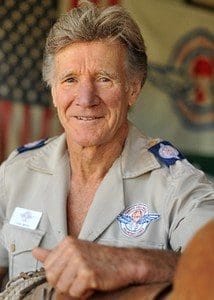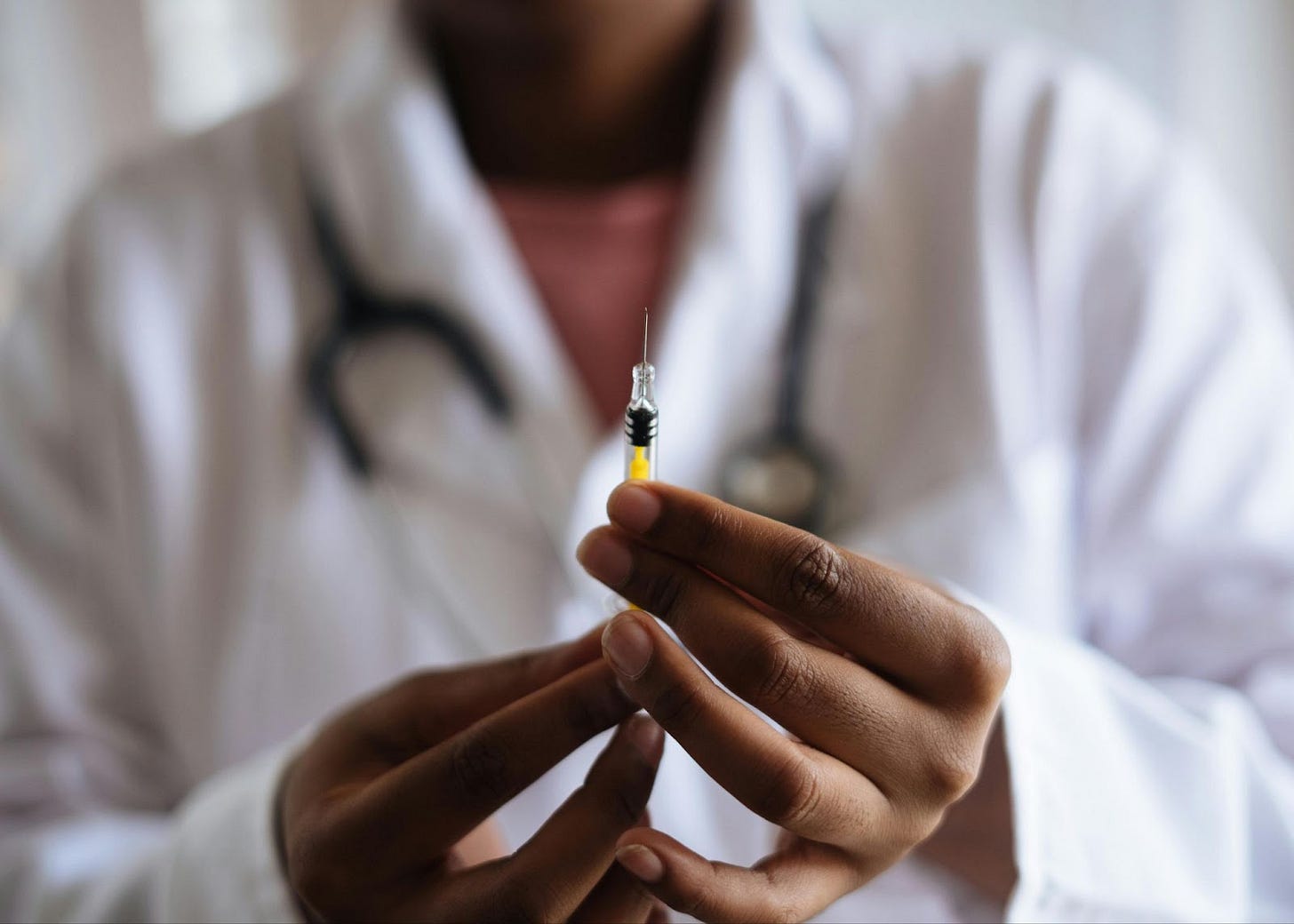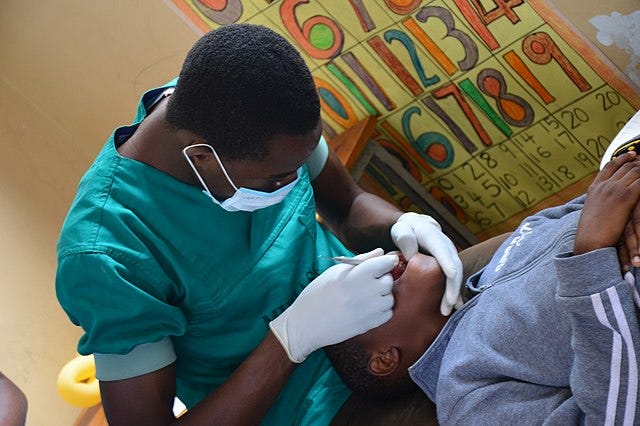From Despair to Dignity: The Radical Work of Free Clinics
How Mutual Aid and Community Solidarity Transform Access to Healthcare
Image by Gordon Johnson from Pixabay
Access to healthcare should be a universal right, yet for millions, it remains out of reach due to intentional systemic inequities that lead to prohibitive costs. Capitalists will always short-change medical care to increase their profit margins, just as they do with our labor.
This translates to real suffering and death to improve their stock portfolios. Every other modern nation seems to have some form of universal healthcare, so why do we remain exceptional in the total number of medical bankruptcies? People here say we don’t want socialized healthcare because of long wait times. So why do we accept no healthcare as a viable alternative?
How obscene is it that in the “richest nation in the history of the world,” so many suffer because they can’t afford basic healthcare! The United States budgets $800 billion a year for perpetual warfare (with actual costs reaching twice that). At the same time, cities allocate half their income to policing to quell populations rather than funding essential services like healthcare.
A Lifeline in the Gap
Photo by Mikhail Nilov via Pexels
What can be done about this? In the U.S. today, most people are just a paycheck away from poverty. Institutional efforts may now grant health insurance, but actual healthcare costs remain unaffordable for many. How does one get the medical care they need while barely scraping by?
Free clinics provide a lifeline, offering essential medical services to individuals who might otherwise go without care. These clinics address immediate health needs and exemplify solidarity, working tirelessly to bridge the growing chasms in an unequal healthcare system.
RAM’s Medical Mutual Aid
Photo via Remote Area Medical’s FB
Remote Area Medical (RAM) is a powerful example of this mission in action. Founded in 1985 by Stan Brock, RAM’s origins trace back to Brock’s experiences in the remote Amazon, where access to medical care was nearly impossible.
Thank goodness Mr. Brock filled in for the glaring needs across this country! However when living in a civilized place, one would imagine such needs as health to become systematically fulfilled. After all, we are awash in the almighty dollars; plenty gets hoarded by the wealthy across borders. ‘Tis strange that those who do the work aren’t reaping the full reward of their efforts.
Today, RAM transforms spaces like school gymnasiums and fairgrounds into fully operational healthcare hubs, providing free dental, vision, and general medical services to overexploited communities. Their work has profoundly impacted countless lives, from relieving chronic dental pain to restoring vision with a simple pair of glasses—all at no cost to the patient.
Medicine Man: The Stan Brock Story
Photo via Remote Area Medical (RAM)
Stan Brock’s vision for RAM was deeply personal, born of his years living among the Wapishana people in the Amazon rainforest. After suffering a severe injury in the jungle and enduring a 26-day wait to reach the nearest doctor, Brock vowed to address the healthcare void experienced by so many.
His story is chronicled in Medicine Man: The Stan Brock Story, a documentary that captures his journey from television star and conservationist to the founder of one of the most impactful mutual aid organizations in healthcare.
The film highlights Brock’s tenacity and the community-driven ethos at the heart of RAM. It paints a vivid picture of the organization’s operations, showing how volunteers and donations transform lives. Brock's life reminds us of the power of empathy and action in tackling systemic issues.
Other Related Orgs
Photo by RF._.studio via Pixels
RAM’s model of care is mirrored by other organizations that champion free healthcare access. FreeClinics.com connects independent clinics across the U.S., ensuring resources and expertise are shared to meet diverse community needs. Maybe you could support one or start one near you.
Mission of Mercy brings healthcare directly to people through mobile clinics, offering free primary care and prescriptions. Rooted in the civil rights movement, community health centers focus on underserved neighborhoods, often providing services on a sliding scale or free of charge. On a global scale, organizations like Médecins Sans Frontières (Doctors Without Borders) extend this ethos to crisis zones, demonstrating the universal need for accessible healthcare.
What makes free clinics unique is their alignment with the principles of mutual aid. These are not charity organizations operating from a position of superiority; rather, they are networks of solidarity where volunteers—healthcare professionals, translators, and administrators—come together to support collective well-being. Sustained by grassroots efforts, donations, and partnerships, free clinics are a testament to the power of community-driven solutions to systemic problems.
Final Thoughts
Photo by Enockbrodie91 via Wikimedia
The challenges that free clinics face are immense, as are those we face in general. Limited funding, increasing demand, and reliance on volunteers mean these vital services are always at risk of being stretched thin. This work highlights the need for systemic change—advocating for policies that expand healthcare funding and charge nothing at their point of use.
Supporting free clinics is a meaningful way to contribute to a healthier, more equitable future in the meantime. Whether by volunteering time and expertise, donating money or supplies, or advocating for universal healthcare policies, you can make a tangible difference. Until we win the fight to make healthcare a reality for all, we must roll up our sleeves and work.
Free clinics are more than a stopgap solution; they declare that healthcare is not a privilege but a right. They represent the best of collective action, reminding us that through mutual aid, we can challenge injustice and restore dignity to all. As we heal and uplift our comrades, they’ll often join the fight and our people power grows.
Beyond Darwinism - Mutual Aid Index
Beyond Survival of the Fittest: Kropotkin's Vision of Mutual Aid
What is the role of solidarity and reciprocity in building equitable and sustainable communities?
Mutual Aid Among Plants and Animals: Cooperating for Survival
Peter Kropotkin Observes How Cooperation Among Species Improves Survival and Shapes Evolution.
Frolics and Barn-Raisings: Mutual Aid Amongst the Amish
Take a Look at the Amish Traditions of Collective Action and Solidarity.
The Arab Spring: Mutual Aid in the Fight for Freedom
See Solidarity in Action with the Collective Struggle for Liberation in the Arab Spring Movements.
The Black Panther Party’s Legacy of Community Empowerment Through Mutual Aid
The BPP protected and served their communities despite rampant racism and being the main targets of the FBI’s Counter-Intelligence Program.
Blessing Boxes: Mutual Aid in Our Communities Today
Find Out How These Simple Free Community Pantries Transform Neighborhoods and Promote Solidarity.
Childcare Collectives: A Modern Expression of Mutual Aid
Childcare Collectives develop when families, friends, and neighbors pool their resources to raise children.
Feeding Hope: The Impact of Community Fridges as Mutual Aid
See How Grassroots Efforts Like Chattanooga’s Hope Community Fridge Transforms Food Access and Fights Food Apartheid.
Grow Food Together: The Impact of Community Gardening as Mutual Aid
Shared Gardens Enhance Food Security, Build Community Bonds, and Promote Well-being Without Personal Expense.
Community Self-Defense: Protecting Ourselves and One Another
Let’s Talk About How Communities Work Together to Protect Themselves From Harm Inflicted by the State and Fascists.
Community Workspaces: Where Coworking Meets Opportunity
Find Out How Shared Community Workspaces Support Creativity and Mutual Empowerment.
Deciding Together: The Consensus Model in Mutual Aid
How Collective Decision-Making Builds Strong and Resilient Movements As Shown by Occupy Wall Street.
Live Together, Thrive Together: Shared Housing as Mutual Aid
Imagine Housing as a Way to Build Community and Share Resources.
Breaking Bread, Building Bonds: What’s Cooking in Community Kitchens?
Learn How These Shared Kitchens Create Lasting Change Through Healthy Meals, Cooking Education, and Mutual Aid.
Migration and Mutual Aid: Navigating a Climate Crisis Together
The USA and Global North Grew Rich Burning Fossil Fuels. Radical Cooperation Can Help Us Adapt to a Changing World.
Forgive Us Our Debts: How Debt Collective Helps Abolish Financial Servitude
Debt Collective Branched Off From Occupy Wall Street and Unifies Debtors in Mutual Aid for Collective Liberation.
Thou Doth Protest? How The Diggers Reclaimed the Commons and Fought Early Capitalism
Learn About the Radical Solidarity and Resistance to the Enclosure of the Common Lands in 17th-Century England.
A World Without Barriers: Consider Accessibility in Mutual Aid
Everyone Becomes Disabled if They Are Lucky. So How Can We Make Our World More Accessible?
Mutual Aid in the Eye of the Storm: Disaster Relief Amid Climate Change
When Disaster Strikes, Mutual Aid Responds: A Blueprint for Resilience Amid More Frequent Catastrophes
Beyond the Ballot Box: Build Dual Power for Real Change
Empower People Through Mutual Aid, Solidarity, and Community Control.
Communities of Care: How Solidarity Transforms Support for Elders and the Differently-Abled
How Can Mutual Aid Principles Change Elderly and Disabled Care From Isolation to Connection?
Growing Resistance: How Food Forests Feed Communities for Free and Defy Capitalism
From Commodities to Commons: The Radical Potential of Agroforestry
Roots of Resilience: Black Mutual Aid Societies in American History
Explore W.E.B. Du Bois’ Work and the Heritage of Solidarity Among Black Folk.
From Despair to Dignity: The Radical Work of Free Clinics
How Mutual Aid and Community Solidarity Transform Access to Healthcare
Feeding Each Other: The Radical Power of Free Grocery Stores
How This Kind of Mutual Aid Transforms Hunger Relief into Community Empowerment
Challenge Capitalism One Free Store at a Time
How Free Stores Empower Communities and Challenge Scarcity
The Past & Future of Self-Governance: How General Assemblies Build Dual Power
Strengthen Communities Through Direct Democracy and Mutual Aid
Let Joy Guide You: The Power of Fun in Change Work
Explore the Role of Laughter, Creativity, and Connection in Community Organizing
Fascism Unmasked: How to Recognize and Resist Modern Authoritarianism
Empower Your Resistance: A Practical Guide to Revolutionary Optimism, Mutual Aid, and Defying Totalitarians
Resist Burnout: Care, Coping, and Wellness in Dark Times
How can we practice self-care to endure the revolutionary marathon and better support one another?
Resistance Anthems: Protest Music for Hard Times
Let’s Unite Our Voices For Justice Through the Power of Music!
Affinity Groups: Decentralized Resistance in an Age of Crises
How Do Small, Autonomous Collectives Build Power and Resistance Against Fascism, Capitalism, and Collapse?
Share a Feast: How Potlucks Build Community and Connection
Let’s Discuss How Sharing Food Nourishes Both Bodies and Bonds Across Generations.
Notes From the Underground: How Forests Teach Mutual Aid
How Do Fungi, Trees, and Other Plants Thrive Through Cooperation and Reciprocity?
Fight Book Bans with Little Free Libraries
How Do Little Free Libraries Turn the Tide Against Book Bans and Censorship?
Read, Rest, Revolt, Repeat: Study Groups as Mutual Aid
How Does Collective Study Build Power, Sharpen Strategy, and Sustain Movements?
Burn After Reading: Comms Discipline for Mutual Aid and Resistance
Think About Encryption, VPNs, Walkie-Talkies, and the Lost Art of Keeping Your Mouth Shut.









